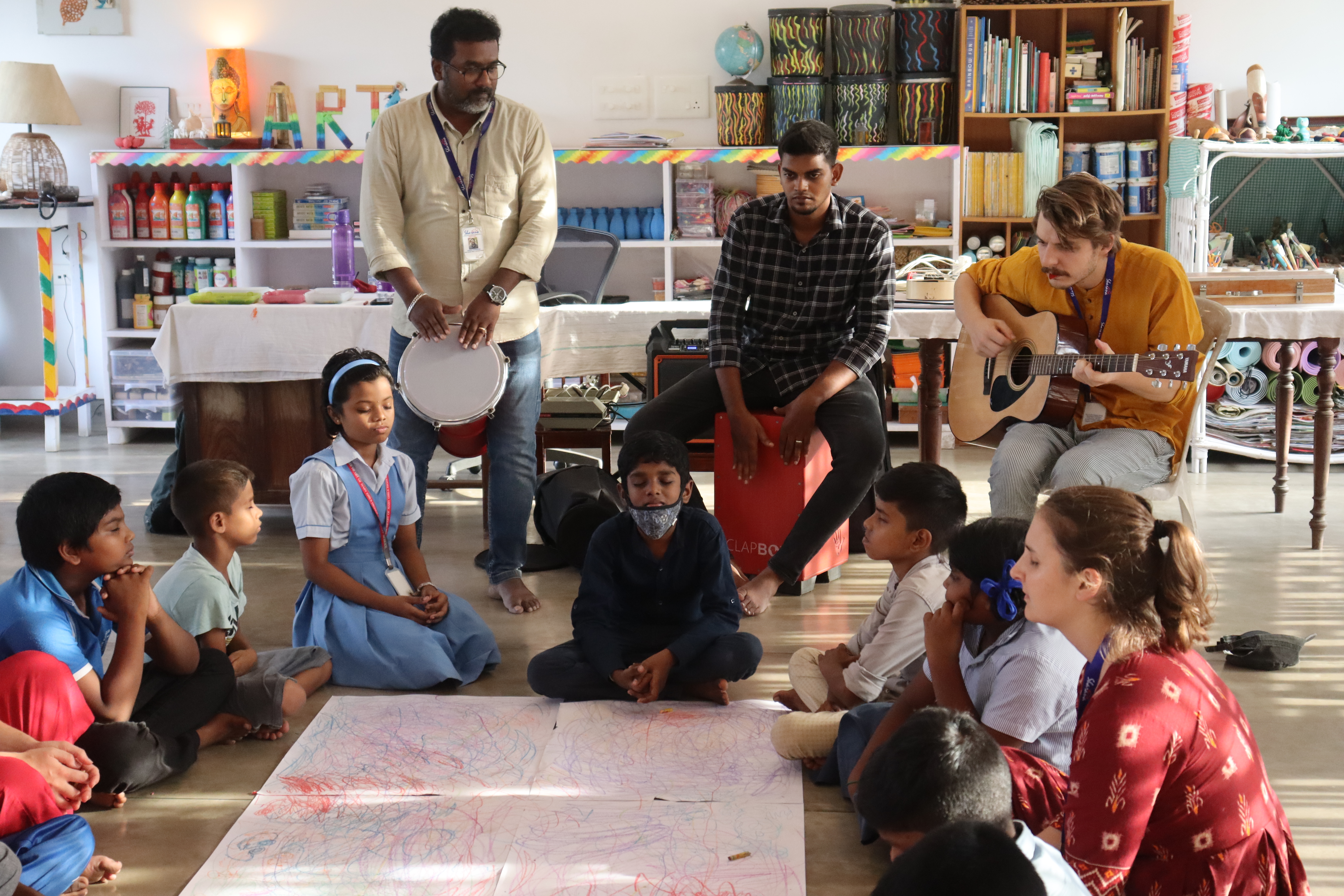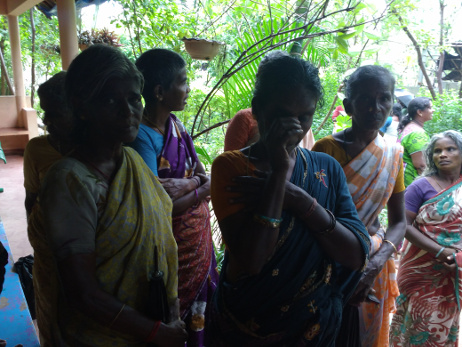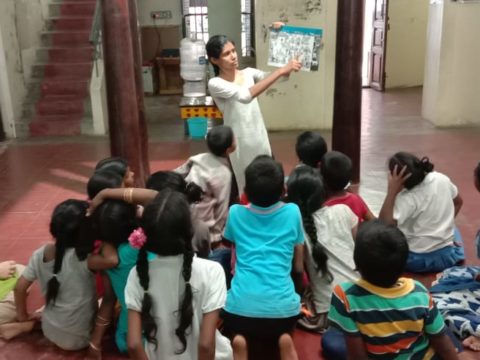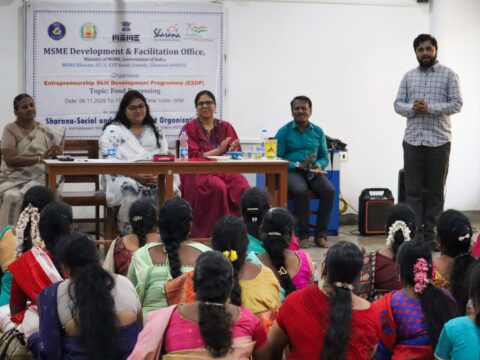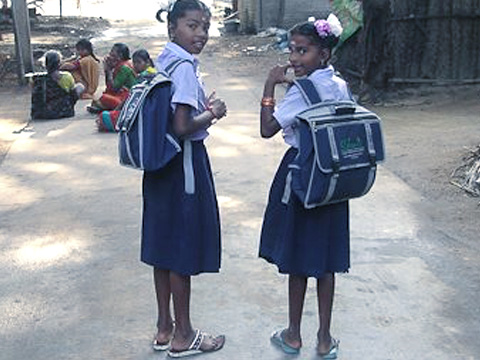For almost two years, hundreds of government school-going children from the communities we work in have had no formal schooling of any kind. With dropping out remaining a huge risk, our work remains more important than ever alongside these children. As an organisation we have never hesitated to work where there are challenges, and our aim remains to be catalysts of change and development in the most vulnerable of communities.
The COVID-19 pandemic made the Digital divide between privileged and underprivileged communities more obvious than ever. While students studying in private schools had seamlessly transitioned from a classroom to an at-home learning environment with the help of the internet and gadgets such as tablets, computers, and mobile phones, our children (the largest chunk of the children we support are those studying in government schools) could not. The backlash and future effects of this divide remain to be seen nationwide and even worldwide, but the urgent fact remains that we have to promptly address it and provide access to Digital learning to all the children in the programs of Sharana.
A few months into Covid, Sharana began a Digital Empowerment program, where children could access our Center and learn the ongoing government school curriculum in the presence of qualified teachers, with access to learning with audio-visual content and a smartboard, in 2 state-of-the-art smart classrooms at Sharana. Since then a minimum of 100 children have been accessing this program daily throughout the past almost 2 years (apart from the peaks of COVID).
But, there were only a limited number of students from areas close to Sharana who could access this program in our Social Centre; several other hundreds of children were still unable to access it due to the distance from their homes. We were also unable to receive them even via organized transport, as our centre can only hold a limited number of students, especially with the COVID protocols such as social distancing, a limited number of children per room and regular cleaning of premises every few hours.
We put much thought into this question of accessibility and came up with the idea to start multiple Homework Help Centres in several areas/communities we work in. In July 2022 when schools reopened for the new academic year, we opened 3 additional homework help centers for children from the slum communities we work in every evening, including one in TN Palayam where an Irular community lives and two others in schools that we work with. Although there are only 30 students in the tuition centre in the Irular Community, it is still important that we provide this support to children in this community. These will be in addition to the homework help centers in our social center in Solai Nagar and in Angalakuppam. This brought the number of daily homework help centers to 5! We currently receive more than 350 children in all the centres combined.
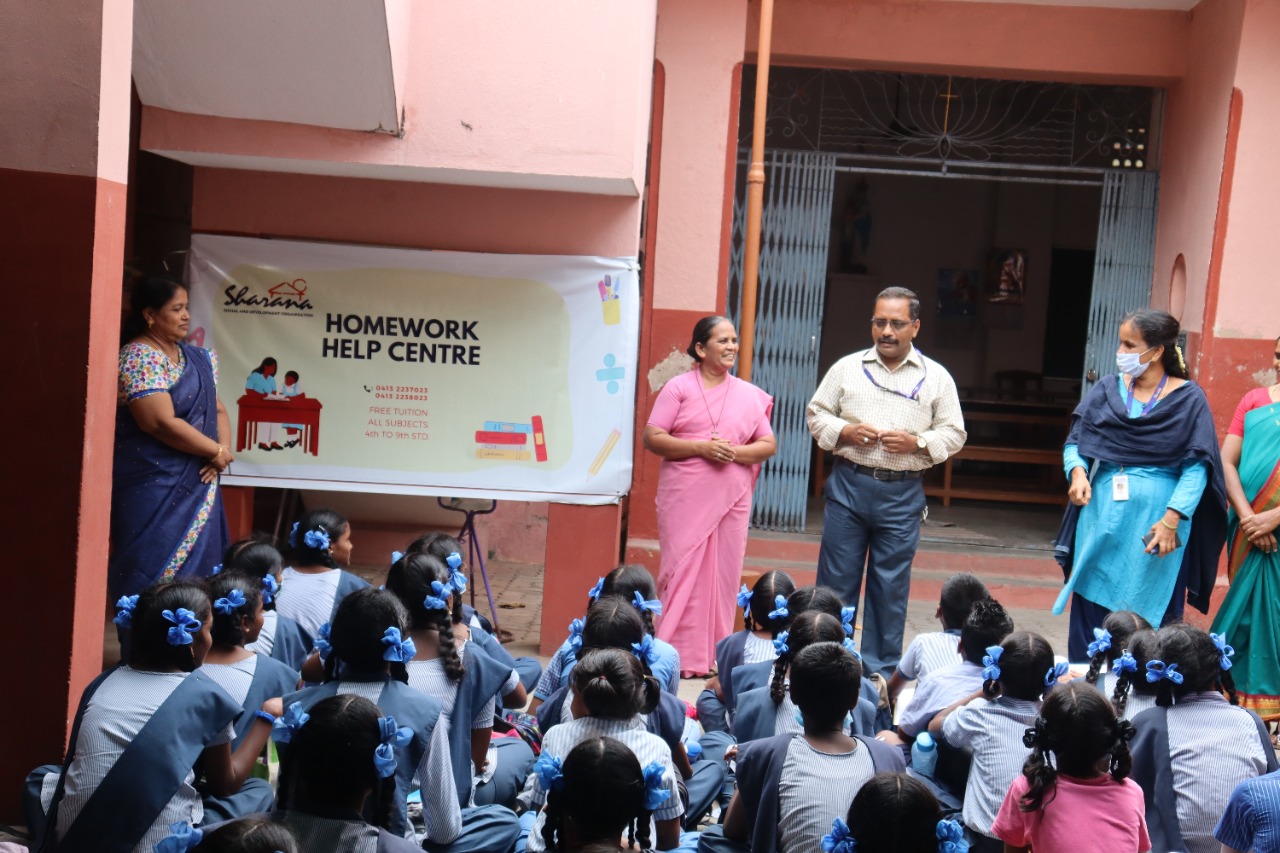 These homework help centers are run in open safe places in the slums, where children can assemble in the evenings in the presence of a qualified teacher and follow/learn better what is taught at school, additionally the children will be able to have access to Digital audio-visual content that will make learning more fun as well as more effective. Needless to say, the children will also receive a regular follow-up by our team of social workers, who are there every evening, and be served a healthy snack. The Homework help centres come under the Back to School Program, which is led by Program Managers Anbazhagan and Ravianand.
These homework help centers are run in open safe places in the slums, where children can assemble in the evenings in the presence of a qualified teacher and follow/learn better what is taught at school, additionally the children will be able to have access to Digital audio-visual content that will make learning more fun as well as more effective. Needless to say, the children will also receive a regular follow-up by our team of social workers, who are there every evening, and be served a healthy snack. The Homework help centres come under the Back to School Program, which is led by Program Managers Anbazhagan and Ravianand.
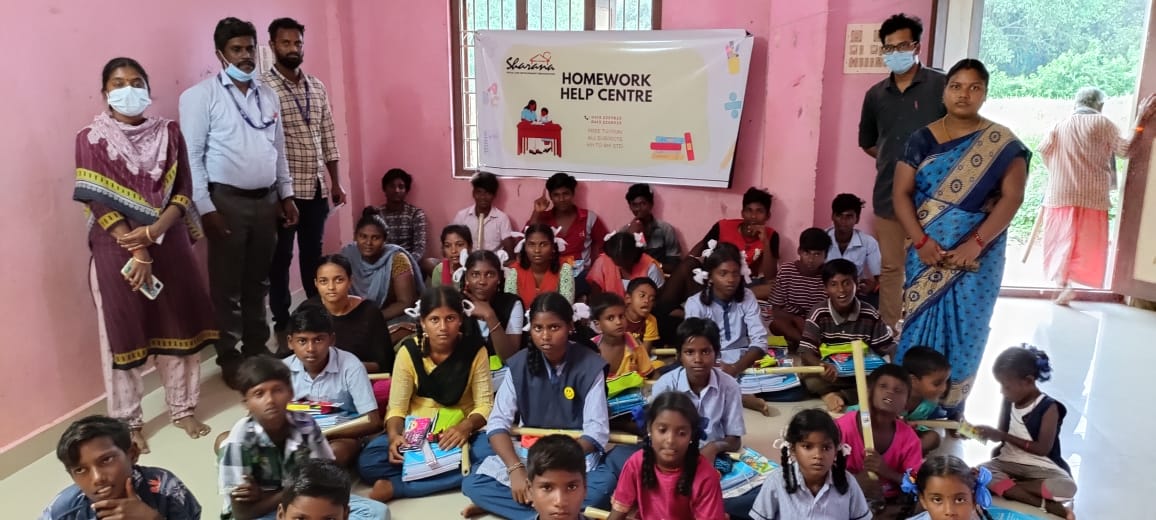 Apart from the regular tuition classes, we also have art sessions with Art Therapist and Intermodal Expressive Arts Practitioner Manuel and Arts and Crafts teacher Jayalakshmi.
Apart from the regular tuition classes, we also have art sessions with Art Therapist and Intermodal Expressive Arts Practitioner Manuel and Arts and Crafts teacher Jayalakshmi.
